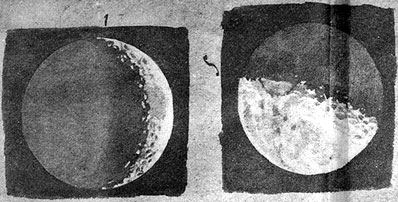The Life of Galileo: Brecht play in Birmingham

We went to see a performance of The Life of Galileo at the Birmingham Rep. The play was staged with a large cast, music and songs, in a new translation by David Edgar made from a literal translation by Deborah Gearing as Edgar does not read German.
The set was simple – just a desk and books at the very front stage (an ‘apron’ at floor height, so we were sitting about 10ft from the actors) of the huge Rep stage, entrances into Gaileo’s lodgings from the middle trapdoor giving the sense of an attic room, and public spaces represented by a raised section of the stage in the rear.
Most of the stage was black, with small stars arranged in a rough milky way and a central illuminated model of the Copernican system with latitude and longitude circles. Backlights were used for emphasis during the various dramatic moments.
Edgar has explained his need to ‘prune rigorously’ in the programme essay, and has mentioned the need to confront the character of Virginia since Dava Sobel’s Galileo’s Daughter has revealed so much about sister Marie Celeste.
I was impressed at the number of ‘science faces’ I recognised including a number of ex-students, and by the number of children and teenagers in the last night crowd. David Mamet – a US playwright with strong views – has always explained the theatre as being about truth, and a meeting of people together with the actors to find truth. I think I can see what he meant last night – but perhaps we need performances at the Blues ground and audiences of 25 000, as some political theatre used to command in Italy.
Edgar explains how he has to strengthen the arguments of the clerics (including a casually manevolent John Woodvine as the Cardinal Inquisitor) as we can no longer bill the play as the Goodies vs the Badies since the development of nuclear weapons and of biotechnology that allows sequencing of genes.
Being a Brecht play, there are song and dance interludes – with real singing, not tapes, although the music had to be taped alas (can’t the budget stretch to a band of musicians?).
Walking back into Birmingham centre to find a taxi afterwards, we had both Jupiter and a bright Moon just past Third Quarter in the sky. No chance of seeing the Milky Way in the centre of Birmingham, itself a measure of how material things have changed since Galileo’s time.
Some ways into the huge Galileo literature can be found on the Rice University Galileo Project web site. This major hypertext resource has been growing since 1995 and has had at least one major re-design along the way.